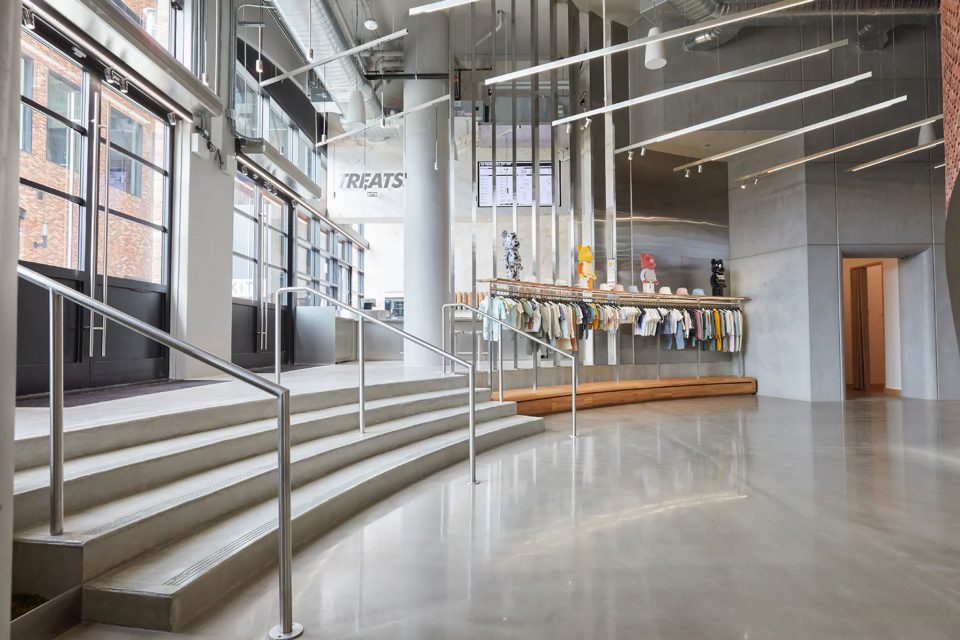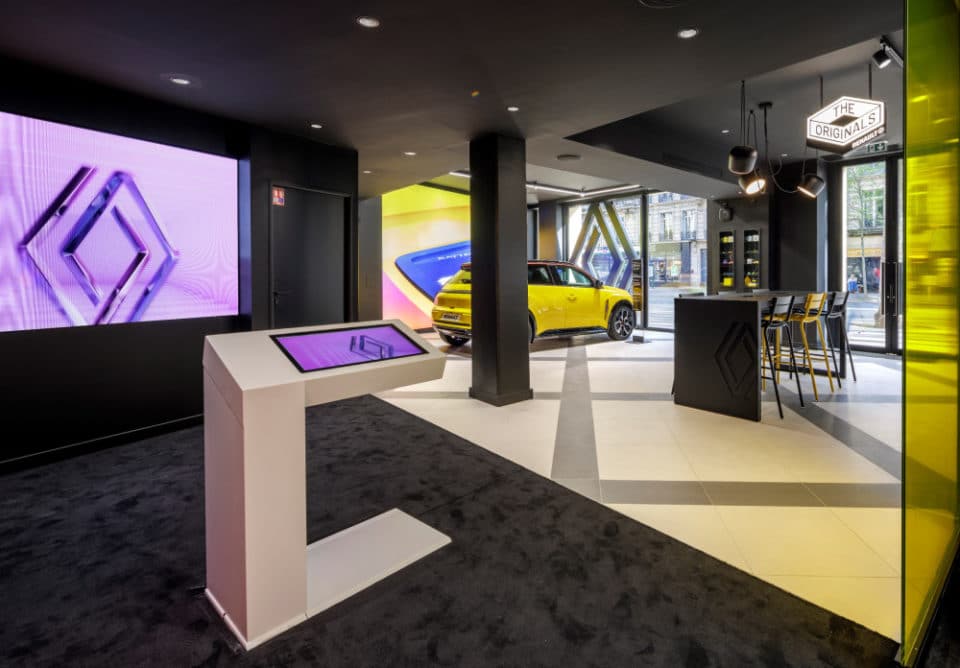2018 update – 50 Best Retail Tech Startups

Over a year has passed since we last looked at some of the start-ups using technology to innovate the retail landscape. From virtual pop-up stores to chatbots talking like humans, here we present an up-to-date list of 50 more retail tech start-ups that have been making an impact over the last 24 months.

SEARCH / CONTENT
1. Adeptmind.ai
Describing itself as ‘an intelligent engine for online retailers that lets customers search the way they think’, Adeptmind wants to eradicate the ‘no results found’ message when it comes to consumer search. By using deep learning and natural language processing, it doesn’t just want to help online retailers bridge the gap between online and offline, but claims to be 100% accurate every time.
2. Bllush
With an understanding that all successful online retailers thrive on effective and engaging content, Bllush simplifies its creation through data-driven technology, content sourcing and auto-tagging. Within fashion, for example, Bllush uses micro-influencers and similar apparel products to create content personalised to your brand. Once the content is live, the start-up also allows retailers to evaluate that content and how it’s performing.
3. Grapevine6
Grapevine6 is a start-up dedicated to making sure retailers can start engaging conversations with the people that matter by sharing content that’s valuable. ‘Grapevine6 sorts through thousands of articles – around the clock, around the world – to find powerful content your audience needs and wants,’ reads a statement on the brand’s site. Not only will your customers be more engaged, but every touchpoint becomes something valuable.
4. Jumper.ai
Working to a mantra that ‘the future is social’, Jumper.ai works to bring selling direct to social media channels. By turning any post into a direct point of sale, the brand also works to make hashtags shoppable too. To date, it has already worked with brands such as Uniqlo, Target and Unilever.
5. KiraKira3D
Targeted at the Gen Z demographic, KiraKira3D is a company that wants to encourage the next generation of innovators, makers, designers and architects by blending art with engineering. It does this by helping young people learn 3D skills through technical online classes, and share designs through their KiraKira community.
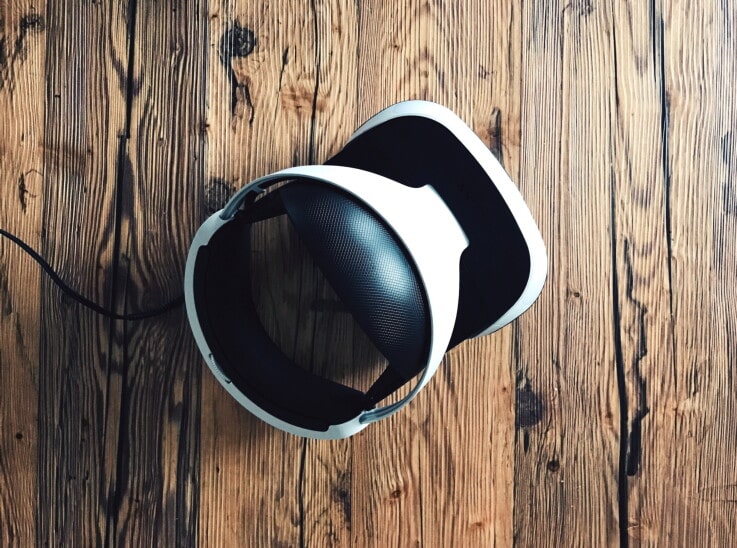
AR/VR
6. Cimmerse
Cimmerse is a web-based 3D AR and VR visualisation tool that works to turn a 2D product photo into a highly realistic 3D model. Working within a mobile environment, the technology promises to improve retailer return rates by allowing consumers to see all the details of the product before purchase.
7. LexSet
Describing itself as ‘artificial intelligence for interior design’, LexSet is an AR tool for furniture and homeware retailers. The app works by allowing consumers to search with their space in order to receive personalised suggestions that don’t just fit that space, but their personal tastes too.
8. Multifold
Multifold is another start-up looking to help retailers boost their sales through their use of AR. While big brands like Apple, Google and Ikea have launched their own iterations of products that allows customers to view products in a real setting through their phones, Multifold’s version works on the web rather than having to download a dedicated app.
9. Obsess
Obsess is a platform that allows brands to create AR and VR shopping experiences for mobile. The platform does this through a number of ways, including letting customers see fashion and home products side by side digitally, letting them visit an AR pop-up store, or by enhancing your outdoor advertising by making it interactive. With mobile AR currently undergoing a huge period of growth, with the install base expected to reach 3 billion by 2021, it’s becoming a lucrative revenue stream for brands.
10. Reality Zero One
Reality Zero One is a company building a platform that works to transport objects in the real world to whichever digital reality the user pleases, be that AR, VR or MR. For retailers, the integration of this tech could add a new dimension to product imagery. While the thinking behind the tech began in 2015, it is expected to become commercially available soon.
11. VirtualAPT
Through the introduction of robots that create 360-degree VR videos for use in various shopping and brand experiences, VirtualAPT is invested in the idea of bringing a realistic in-store experience to the home through web-based, interactive video. The company has claimed that, with this technology, it could allow someone at home to view 10 different apartments in 20 minutes.

FINANCE
12. dLocal
dLocal is a payment technology platform specialised for emerging markets. With one integration with dLocal, the company offers over 200 payment methods for 2 billion consumers within 20 emerging markets. As well as minimising fraud and maximising approvals, the company states that it increases conversions by up to 40%.
13. Gatcoin
Gatcoin is another company, launched in 2017, that helps retailers tap into the growing interest surrounding cryptocurrency and digital money. It works by turning discount coupons and loyalty points into a universal, tradable digital token on the blockchain. So as well as brands being able to launch their own branded currency, the company is redefining customer loyalty too.
14. Hexel
Hexel is another start-up helping retailers tap into the potential offered by cryptocurrencies. It works by allowing brands to create their own cryptocurrency to better engage with hyperlocal communities. While a token can be created for all consumers, one could be created for a social media channel’s followers, a specific subreddit or even for a niche of consumers with a particular interest.
15. Simple Token
As consumers continue using cashless payment methods to purchase goods, there’s a rise in start-ups investing in cryptocurrencies. Simple Token is one of these, and allows brands to launch their own branded digital currencies. As well as giving the opportunity to turn any business into a dynamic ecosystem, these branded currencies can be used to incentivise user behaviour and improve reward schemes.
16. Spendesk
While most of the start-ups in this list are dealing with how to streamline the buying experience, Spendesk wants to optimise the spending experience with a company. By implementing an easy-to-use system that doesn’t just facilitate safe purchases but automates expense reports, Spendesk allows retailers and other businesses to regain control of their company spending.

FASHION
17. Body Labs
While Body Labs as a company has been around since 2013, it was only towards the end of last year that it was acquired by Amazon, meaning it’s one to watch for a relaunch throughout 2018. As a company, it uses AI to understand the way people move and respond so accurate 3D body models can then be created. While the natural use for retailers would be within size and fit, there are numerous impacts this could have moving forward.
18. BrightLabel
If there’s anything consumers want from retailers today, it’s transparency. BrightLabel is a company that taps into this thinking and offers a new way to put in-depth product information into the hands of consumers through the labelling process. The label information now includes where a product was made, how it was made and what it was made from, and lets consumers find out about potential allergies or the environmental impact of specific pieces.
19. Bump
Bump is a peer-to-peer marketplace for the ever-growing, ever-lucrative streetwear market. With a user base that already totals over 200,000 after just six months, the site doesn’t just facilitate streetwear sales in a safe environment but features a chat interface so users can communicate with like-minded users.
20. Entrupy
Last year, Entrupy started to roll out its authentication system to luxury resellers. Claiming to be the only technology-driven solution of its type, it puts resellers and marketplaces in control by offering something that’s able to instantly tell if a luxury fashion item is real or a counterfeit. To date, Entrupy has authenticated a total of $14 million worth of goods.
21. EON-ID
Said to be the world’s first global system for textile recycling powered by the Internet of Things, EON-ID transforms old clothing into new garments. While there are lots of textile recycling brands in the market, the integration with the Internet of Things helps to increase efficiency and the overall recycling process. The system works by tagging each object to give it supply chain visibility, better inventory management and better return authentication.
22. Frilly
With an understanding that personalisation is key, particularly when it comes to fashion, Frilly is a site where consumers can fully personalise the pieces they’re buying, from the hemline to the fabric used. And, working to a made-to-order model means typical inventory issues that lead to pollution and waste are bypassed.
23. Intelistyle
Intelistyle is an AI-powered personal fashion stylist. Able to remember the pieces you have in your wardrobe, the app offers real-time styling advice. It also, from taking a photograph, can recommend new clothes that match the outfits you already own.
24. Mysprezz
Mysprezz is a start-up that wants to provide a way to offer consumers instant outfit suggestions based on the weather. After specifying the city, date and style, the app will generate personalised looks from a number of brands which, naturally, you can then shop within the app too.
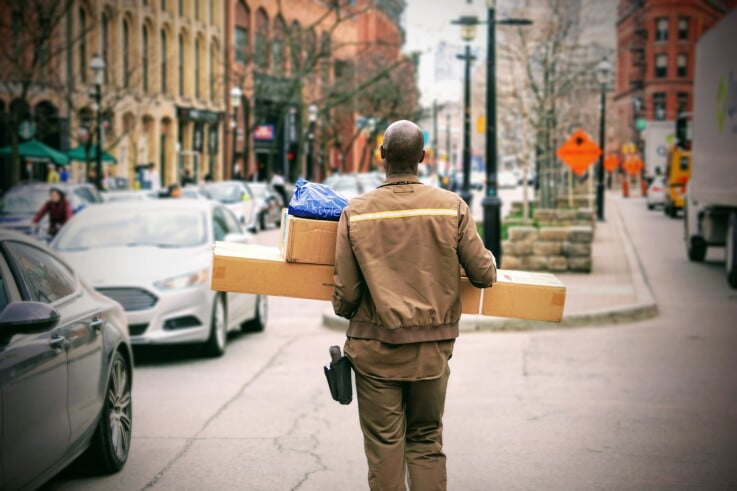
DELIVERY / SUPPLY CHAIN
25. Exaactly
Launched towards the end of 2016, Exaactly is a delivery system that wants to eliminate the known pain point of delivery for retailers by enabling online shoppers to provide precise location information for delivery companies. ‘With one click, you can give retailers and couriers a pinpoint location, photographs, instructions and more to ensure a successful delivery,’ reads a statement from the brand’s website.
26. Indigo Fair
With a strong belief that the future of retail is local, Indigo Fair is an online wholesale marketplace that helps retailers both stock and discover new products across all manner of sectors, from fashion and home decor to jewellery and beauty. Not only that, but the company wants to eliminate the risk that typically surrounds wholesaling by offering free returns on products that are not performing well.
27. Stowga
Stowga is on a mission to change the way retailers are interacting with and optimising their warehouses, supply chains and inventory by reinventing the supply chain to make it more short term and more flexible so it suits the dynamism of a business’s needs. As well as having access to the biggest network of warehouse and logistic providers, its access to off-market space also means high volumes are available at low market prices.
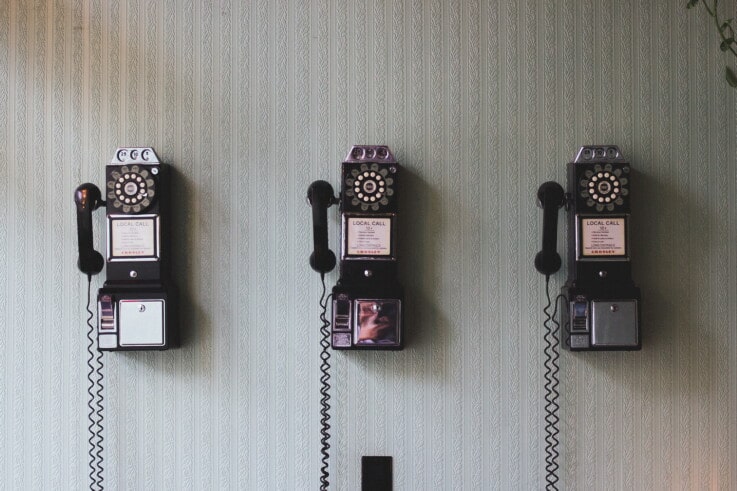
CHAT
28. AskHub
AskHub is a start-up dedicated to helping chatbots learn how to talk, naturally. By putting your chatbot through a ‘stress test’, wherein thousands of user requests are sent, as well as real-time detection of user intents, the company can identify what problems are cropping up with your chatbot and offer a conversational solution to fix it.
29. BotFuel
Founded in the second half of 2016, BotFuel is a Paris-based start-up that builds chatbots that thrive on natural conversation. With conversational commerce, customer support and brand marketing all playing a key role in the development of these chatbots, they’re ready made for developers and can be integrated with various social media and chat channels.
30. IamBot
IamBot helps brands and retailers sell their products directly through instant messaging channels. By integrating intuitive product searching fuelled by artificial intelligence, the company is a mobile-first selling solution. It comes at a time when, by the end of this year, the number of chat app users worldwide is expected to reach 2 billion.
31. Magia.ai
Born from the notion that many consumers are sold products from salespeople that don’t truly know the products they are selling, Magia.ai is a digital sales assistant powered by AI capable of understanding products, addressing consumer concerns and generally selling a product with hyper-personalisation in mind.
32. ScopeAI
By integrating with existing channels that monitor customer conversations, ScopeAI is dedicated to analysing these conversations in order to extract actionable insights. Not only does it also reveal particular trends that are spiking within these conversations, but analyses customer satisfaction against purchase data.
33. Soul Machines
Soul Machines is on a mission to humanise computing by combining the expertise of AI researchers, neuroscientists, psychologists, artists and innovative thinkers. One result to have come out of the company is AVA, or Autodesk Virtual Agent. While it works in the same way a chatbot would, offering positive customer service, its success comes in the fact that it allows consumers to interact with something that looks and feels human.
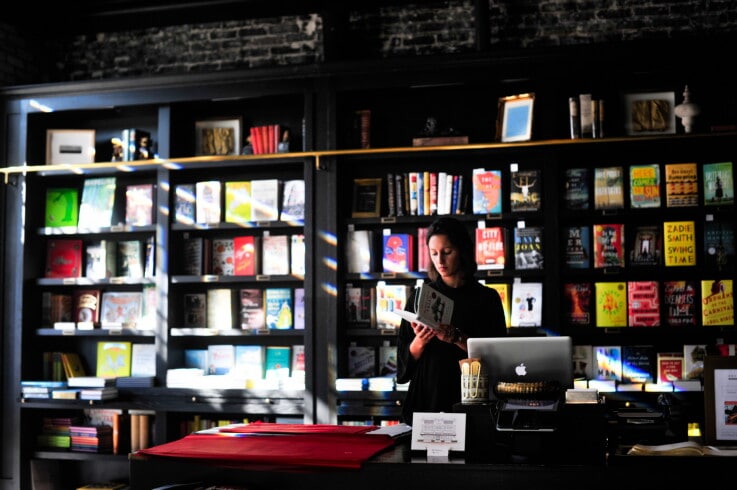
PHYSICAL RETAIL
34. AiFi
Just a number of weeks ago, start-up AiFi came out of stealth to reveal its checkout-free solution. While the technology works in a similar way to that of Amazon Go, this company has promised that it can facilitate huge retailers with hundreds of thousands of products. Alongside the idea of eradicating the checkout, the tech also monitors consumer behaviour within the store.
35. IMAGR
IMAGR imagines a future built on seamless customer experience. With that in mind, the company fuses AI and computer vision to automate transactions and save time. SMARTCART is one of IMAGR’s innovations, and allows shoppers to pair their phones with their carts so items are automatically identified and paid for.
36. MobyMart
There’s a lot going on with MobyMart. Hailed to be the future of retail, the store isn’t just staffless and data-driven, but moves on wheels from location to location. Designed to monitor its inventory in real-time, the automated store doesn’t just drive to locations where an item might be in high demand, but is fitted with drones to deliver larger items to nearby customers. Plus, because it’s covered by a 200-inch screen, it’s a perfect opportunity for potential advertisers.
37. Outernets
Bringing together the personalised, interactive experiences of online shopping with the physical world, Outernets turns windows into interactive displays. Using facial tracking, gesture recognition and mobile integration to alter the displays, the screens serve dynamic ads based on demographic and other factors such as the weather.
38. Planckly
Wanting to offer a solution that beats payment queues, Planckly is an innovation launched by Techwisely. It works in a similar way to Amazon Go, with consumers scanning items on their mobile, paying for those items through a dedicated app and leaving the store with their products. Though the Kickstarter for the product didn’t reach its final goal, it’s worth keeping an eye on this start-up.
39. Sensei
Launched last year, Sensei is an AI-powered video recognition solution that allows retailers to accurately monitor their in-store traffic flow, sales performance and product recognition. By using surveillance cameras installed within the store, the technology doesn’t just analyse data so retailers can generate a better understanding of their consumer’s behaviour, but offers actionable insights to drive higher sales.
40. SwiftGo
SwiftGo offers a solution for retailers to provide customers with a personalised in-store experience without compromising on security. Functioning as a mobile app platform, it’s easy to implement and works to learn more about the customer’s individual shopping habits.
41. Warung Pintar
While much of what Warung Pintar is up to is under wraps, the Indonesia-based company is a smart kiosk store that wants to help street vendors boost their offering through new design and a range of technologies. Surrounded by a community-led spirit, Techcrunch reported that at present, the retail start-up has 12 kiosk owners in Jakarta that have said that, after the integration of free Wi-Fi, LCD screens, power banks chargers and more, revenue increased fivefold.
42. Wiseshelf
Wiseshelf wants to redefine the physical retail experience and brings real-time insight to standard retail shelves within a traditional brick-and-mortar setting. Through technology installed on the store’s shelves, actionable data can be collected, out-of-stocks can be reduced and bad positioning can be avoided.
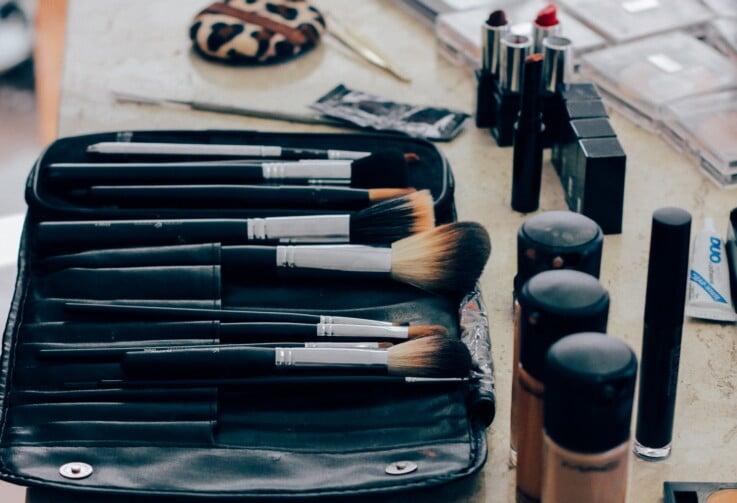
BEAUTY
43. Proven
Proven is a beauty brand harnessing AI to sell personalised products to consumers. By taking information from countless online testimonials and other data online and comparing that with data acquired from questions answered by consumers on their age, ethnicity, skin type and skincare priorities, the brand applies AI to ensure every consumer is getting a product that’s right for them and only them.
44. SkinGenie
As the world’s first AI and DNA-based skincare advisor, SkinGenie offers a new perspective for the beauty industry. It works by having customers provide a saliva sample so the company can extract DNA, analyse that DNA and provide a curated list of products tailored to that person’s skin.
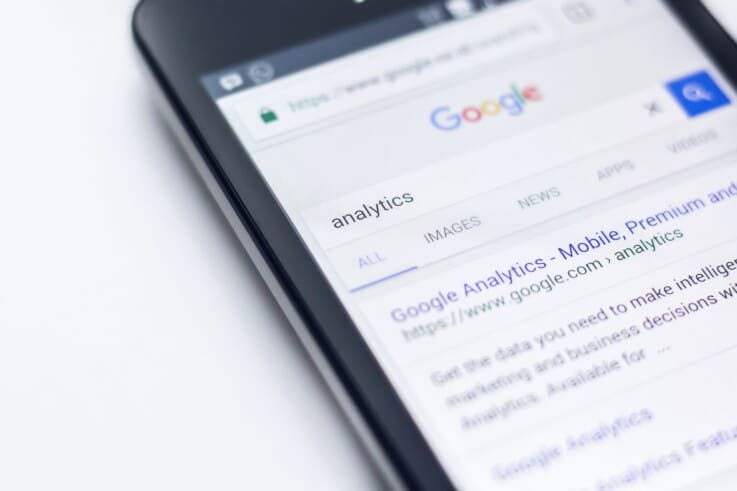
ANALYTICS
45. Daco
Daco is a company offering high-end strategic tools to help retailers know what they’re up against, from the climate of the market to what their competitors are doing. For a brand, this data-driven solution can define strong pricing and anticipate demand. For a wholesaler, distributors can be monitored and controlled worldwide.
46. Delphia
Launched towards the end of 2017, Delphia creates AI-based surveys that help consumers make more informed decisions. Especially at a time when consumers are more overwhelmed than ever by choice, the application of AI and machine learning, paired with the team’s academic researchers, social scientists and data specialists makes for an effective decision-making solution.
47. Layer 6 AI
As an AI platform built to predict and personalise, Layer 6 AI is a system that can decipher copious amounts of data from all manner of sources, be it transaction history or product data, and repurpose it in a way that offers real-time, valuable, personalised predictions.
48. Mindtrace
Mindtrace is a company connecting neuroscience developments with industry applications. Working to three main components of eye-tracking, emotion-tracking and excitement-tracking, it can inform brands on what’s working and what’s not working. The company has already worked with brands such as Mercedez-Benz.
49. VoiceOps
Launched in 2017, VoiceOps transcribes and analyses conversations your sales team is having with your customers to provide valuable, actionable and data-driven feedback across your business. As well as highlighting the key areas for improvement or potential within your business, the system allows brands to bring new team members and under-performers up-to-speed in a quick, easy way.
50. Wittos
‘Wittos provides a solution that visualises aggregated analytics that combine human factors and internet utilisation,’ reads a statement on the brand’s website. In other words, it ensures Wi-Fi space owners can make better infrastructure investments by understanding how people are using their internet. It does this through the introduction of smart Wi-Fi portals and advanced Wi-Fi analytics, and an encompassing look at data.
How many of our original top 50 retail tech start-ups have you heard of?
For more content like this, or to keep up with the latest retail trends, click here to join our community.


